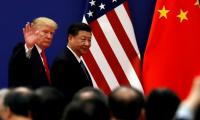Islamabad: Jinnah was running to a completely different direction as he was unaware of secretive communications between Nehru, Lord Mountbatten and Maharaja Hari Singh during Kashmir’s accession, said Dr Dushka Hyder Saiyid, former Professor of History, Quaid-i-Azam University.
Dr Dushka was addressing a Roundtable discussion on “Narratives on Kashmir” organised by Institute of Regional Studies (IRS) in collaboration with Centre for International and Strategic Studies (CISS), Azad Jammu and Kashmir here Thursday.
Dr Dushka told the participants that with Nehru’s connivance, Hari Singh signed an instrument of accession to India, adding that the decision was taken right after a day when Indian troops landed in Srinagar on Oct 26, 1947. She further told that Mountbatten was the very much part of the Kashmir’s accession to India as he clandestinely supported Nehru.
Earlier, Dr Asma Shakir Khawaja, Executive Director, CISS, said that the revocation of Article 370, and 35 A, was nothing but a part and parcel of India’s systematic political and demographic engineering in the Occupied Kashmir that had threatened the very basis of the right of self-determination.
British historian Victoria Schofield argued that the very reason behind the lukewarm support of the international community for Kashmir cause was the changed narrative of freedom fighting in the post-9/11 era in which the Kashmiri struggle was unfortunately equated with terrorism. On human rights, she said that the situation further deteriorated after the revocation of Article 370, and for that, a serious dialogue between Pakistan and India was needed, she emphasised.
Dr Christopher Snedden, an Austrian political scientist, was of the view that bringing India and Pakistan to the table was indeed a challenge, equally building international pressure on India to resolve the Kashmir dispute was also a challenge, he added. Echoing what Schofield said, Dr Snedden stressed the need to work on giving relief to the Kashmir people. Former High Commissioner Abdul Basit held that India would never reverse its August 2019 decision so Pakistan needed to review its policies accordingly and devise a workable strategy vis-à-vis the Kashmir issue. He was quite hopeful that sanity would prevail and the new governments both in India and Pakistan after the elections would make a sensible start through a meaningful engagement.
President ICCI Nasir M. Qureshi presents a souvenir to Special Envoy and Ambassador Extraordinary of the Federal...
Students of matric class solving paper in examination center on May 13, 2024. — PPI Rawalpindi:Under the vision of...
Commissioner Rawalpindi Division Engineer Aamir Khattak presides over a meeting on March 26, 2025. —...
The representational image shows female students taking computer classes at a digital skill training institute on...
Capital Development Authority and Chairman CDA and Chief Commissioner Islamabad Muhammad Ali Randhawa presides over a...
Police officers stand behind crime scene police tape. — AFP/FileIslamabad:The double murder of two women remains...







